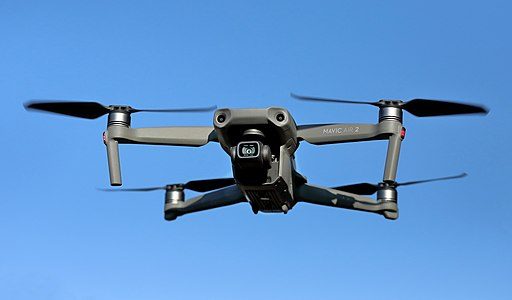New Regulations Target High-Precision Equipment, Adjust Standards for Drone Components
China will implement changes to its drone export controls starting September 1, 2024, according to a Reuters article. The amendments, which include adding high-precision measurement equipment to the control list and adjusting standards for certain unmanned aircraft components, come in response to increased scrutiny from the United States and its allies over allegations that Beijing is supporting Russia’s war effort in Ukraine.
Safeguarding National Security and Global Supply Chains
The Chinese commerce ministry stated that these adjustments aim to better safeguard China’s national security and interests. The measures are also intended to ensure the security and stability of global industrial and supply chains. In a notable move, Beijing will lift temporary export controls on certain consumer drones. China, a major player in the global drone manufacturing industry, has reiterated its opposition to the use of civilian drones for “non-peaceful purposes,” according to the Reuters article.
Reactions from Ukraine and DJI Technology
Kyiv’s foreign ministry spokesperson noted that during a recent visit to China, Ukraine’s foreign minister Dmytro Kuleba was assured that Beijing had not sent weapons to Russia and would not do so in the future. Furthermore, Beijing is strengthening export controls, particularly on civilian drones.
DJI, the world’s leading drone manufacturer, welcomed the export control adjustments. In a statement to Reuters, the company emphasized that its products are intended for civilian use only. “We have never designed, developed, or manufactured military-grade equipment, and we have never adapted our products or pursued business opportunities for combat operations,” DJI stated. The company also affirmed its commitment to complying with China’s export control rules and the laws and regulations of the countries and regions where it operates.
U.S. Legislative Response and Previous Controls
In May, a group of House Republicans proposed legislation to increase U.S. tariffs on Chinese-made drones by 30% and ban imports of drones containing critical components made in China by 2030. This move followed China’s announcement last year of export controls on some drones and drone-related equipment, aimed at safeguarding “national security and interests” amid rising tensions with the United States over access to technology.
The previous measures included a two-year temporary export control on some consumer drones, with no civilian drones allowed to be exported for military purposes. At that time, the ministry stated its decision to “appropriately” expand drone export controls without targeting any specific country or region.
China’s latest amendments to drone export controls highlight the ongoing geopolitical tensions and the strategic importance of drone technology in international relations. As the global landscape evolves, the impact of these regulatory changes on the drone industry and international trade remains to be seen.
Read more:
Miriam McNabb is the Editor-in-Chief of DRONELIFE and CEO of JobForDrones, a professional drone services marketplace, and a fascinated observer of the emerging drone industry and the regulatory environment for drones. Miriam has penned over 3,000 articles focused on the commercial drone space and is an international speaker and recognized figure in the industry. Miriam has a degree from the University of Chicago and over 20 years of experience in high tech sales and marketing for new technologies.
For drone industry consulting or writing, Email Miriam.
TWITTER:@spaldingbarker
Subscribe to DroneLife here.


